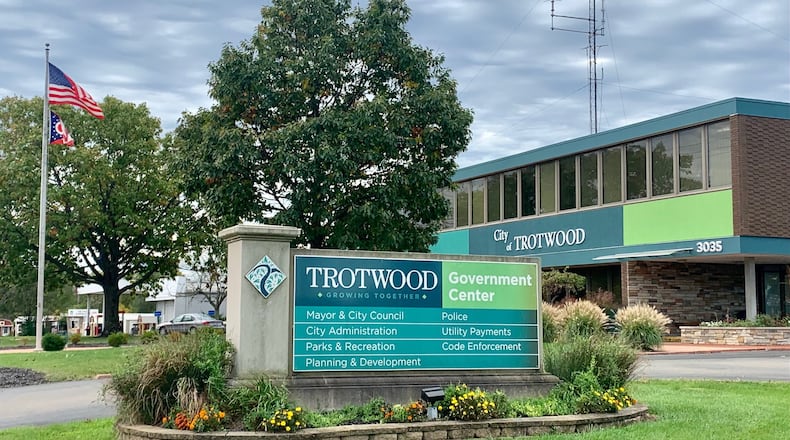Scearce, a former Trotwood City Schools Board of Education member, is the pastor and founder of the Gateway Cathedral Church. Located at 5501 Olive Road in Trotwood, Gateway Cathedral will also serve as a precinct voting site in November.
In the letter to Kelley, the group references “large photos of Mr. Scearce” that are hanging inside the church, which the residents feel may provide an unfair advantage for Scearce.
The letter, obtained by the Dayton Daily News, bears the names of more than two dozen Trotwood residents.
Scearce said the church has been a polling place for decades and rejected the idea his church continuing to serve as a polling location gives him an unfair advantage.
“I’m running for council because I love my city,” he said. “And I believe it needs a different type of leadership.”
Kelley, councilmember Rhonda Finley, and Vice Mayor Yvette Page raised concerns in July with Montgomery County Board of Elections Deputy Director Russ Joseph.
Elections board responds
After initially responding in July “I understand the urgency and importance of the issues that you all have raised,” Joseph wrote to the Trotwood officials in August that BOE officials received “legal guidance” and ultimately decided not to move the polling location from Gateway Cathedral.
Joseph wrote that portraits of Scearce hanging inside the church would not automatically be considered campaign material.
“Guidance from the county prosecutor notes that many voting locations exist in local government buildings that may contain pictures of elected officials who are also appearing on the ballot,” he wrote. “... It would not, however, be permissible in this case to turn a church photo display into a campaign display urging folks to vote for the candidate.”
Kelley said Saturday he disagrees with the board’s decision.
“In the last 15 to 20 years, who have we had running for office that had his own business or church as a voting site?” he said. “You cannot tell me that this isn’t going to give (Scearce) some type of advantage … voters are deserving of a neutral site.”
Under Ohio Revised Code, the influencing of voters and/or election campaigning of any kind is prohibited within 100 feet of a polling place, as this area of a polling site is considered to be a “neutral zone” during an election.
Joseph wrote that Scearce would not be permitted to be within the “neutral zone” of the voting site, nor would he be permitted to place any campaign signs or materials inside of the 100-foot markers.
Outside of this 100-foot zone, if owners of a polling location decide to allow campaign signs for one campaign or issue, they must allow signs for all campaigns.
“The board of elections will discuss these items with the church and candidate in question to make sure they are aware,” Joseph said.
Changing polling locations
Joseph also noted the board’s general hesitation to move polling sites.
“The more stable our voting locations are, the less trouble our citizens have in remembering or finding their voting locations,” he wrote.
The Ohio Secretary of State’s Office stipulates changes can be made in the number or location of polling sites up until the 25th day immediately preceding an election, and even past that in the event of an emergency, so long as certain criteria are met.
Scearce said his church has been a polling location for decades — much longer than his time overseeing the building.
When he was running for a seat on Trotwood-Madison City School District’s board of education in 2017 and for Montgomery County commission in 2020, his church was also used as a polling location.
“It’s a way that we’ve been called to serve the community. But it’s an issue now,” he said. “And it’s not a group of people bringing forward concerns. They’re the incumbents I’m running against.”


